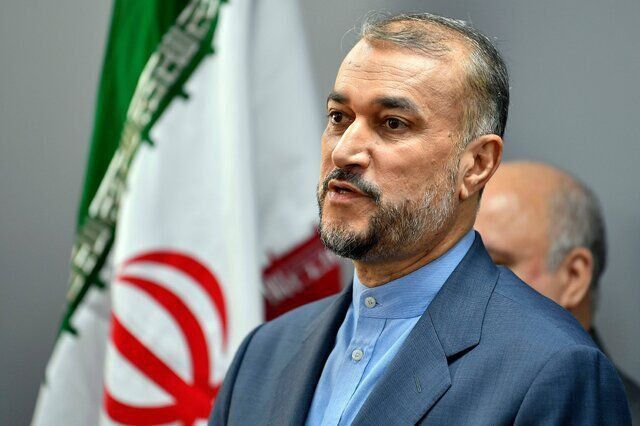Iran’s Foreign Minister, Hossein Amirabdollahian, is set to depart from Beirut to Doha, the capital of Qatar, following his diplomatic discussions in Lebanon, a source told Iran Nuances. This visit represents a distinct phase in Iran’s ongoing regional dialogues, particularly focused on matters pertaining to Palestine. Amid engaging with Qatari officials, Amirabdollahian is anticipated to confer with Ismail Haniyeh, the head of Hamas’ political bureau.
This diplomatic mission takes place ahead of the commencement of a four-day truce in Gaza, brokered through Qatar’s mediation. Observers attach significant importance to the Iranian foreign minister’s discussions with Qatari and Hamas authorities in the context of the impending days and the mechanism for effectuating the prisoner exchange.
The Iranian Foreign Minister’s visit to Qatar could potentially signal Iran’s role in the Gaza ceasefire process, a position Iran has advocated since the inception of the conflict. Notably, Iran seeks the meticulous implementation of the truce and the establishment of conditions conducive to its extension.
While Qatar’s mediation, through interactions with Palestinian groups and Israel, has positively influenced the process, Iran and the resistance front have actively endeavored to halt the Gaza conflict by backing Palestinian resistance groups and promoting deterrence in their favor. Therefore, Amirabdollahian’s consultations in Qatar should be acknowledged as integral components of diplomatic endeavors aimed at securing a ceasefire in Gaza and a complete cessation of hostilities.
During an interview with al-Mayadeen in Beirut, Iran’s foreign minister underscored the potential expansion of the war should the four-day truce not be extended. Despite Israel accepting the temporary truce, it has concurrently issued threats to resume its assaults following the cessation. Israeli Prime Minister Benjamin Netanyahu pledged to recommence hostilities with Hamas, ahead of the cabinet’s recent approval of the four-day truce proposal.
Throughout the conflict in Gaza, Iran’s primary diplomatic focus has revolved around terminating Israel’s attacks and delivering urgent aid to the strip’s populace. To this end, Iran’s efforts span various dimensions:
- Sustained engagement with Palestinian resistance groups.
- Consistent political backing for Palestinian rights and resistance groups in international forums.
- Ongoing dialogues with influential regional mediators and actors such as Qatar, Egypt, Saudi Arabia, and Turkey.
- Endeavors to elevate the Palestinian cause and the Gaza conflict to the agendas of regional and international institutions, aiming to garner increased support for Gaza’s people and enhance the efficacy of these institutions in addressing the longstanding Palestinian issue.
- Striving to amplify global and regional public support for Palestine.
Conversely, Western and Israeli officials have employed rhetoric about Iran’s ties with the Palestinian resistance groups to mitigate pressure on Tel Aviv concerning its actions in Gaza. Nevertheless, Iran maintains communication channels with the Palestinian resistance and continues consultations with moderate governments in the region and the West to potentially contribute to de-escalating tensions and conflicts. Accordingly, some Western countries’ consultations with Iran, including indirect messages from the US, have been geared toward harnessing Iran’s influence to manage regional tensions.
While Israel defends its actions in Gaza under the objective of eliminating Hamas, numerous analysts perceive parallels between the current events in Gaza and Israel’s 1982 invasion of Lebanon. Intriguingly, these events not only fell short of achieving Israel’s objective of annihilating the Lebanese resistance group, but it inadvertently facilitated the rise of Hezbollah and prompted the eventual ejection of Israel from Lebanon, solidifying the country’s stance against Israel. Consequently, all political factions in Lebanon have come to perceive Hezbollah as an integral component of the nation’s defense apparatus.
Inferentially, based on such analyses, there is a prognosis that the current conflagration in Gaza could incite a new generation of Palestinian resistance fighters who strongly advocate the Palestinian cause, potentially strengthening Hamas in the process.
As indicated by official sources in Gaza, on the forty-sixth day since the inception of the war, casualties owing to Israeli attacks on the Gaza Strip have escalated beyond 14,500, which includes over 6,000 children.






